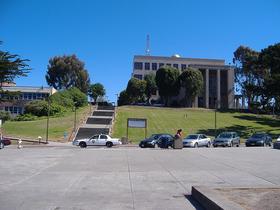Community colleges have come to the forefront of higher education in recent years since President Obama made them one of the priorities of his administration. To help the process along, the Aspen Institute College Excellence Program recently published a list of what it calls the nation's 120 best community colleges – which is the top 10 percent of all community colleges in the country. This list comes after extensive data collecting and analysis that attempted to accommodate the broad variations within community colleges while adhering to a general standardization that accurately compares schools.
The Contest for Top Spot
Now that the top 10% college list has been completed, the Aspen Institute hopes to continue the process by choosing 10 colleges out of the original 120. From the list of 10, the organization will select a single, top-performing school to award $1 million for excellence in school performance. According to the Aspen Institute's website, the contest's purpose is to raise awareness of the value of community colleges and reward those institutions that are committed to maintaining the highest standards of excellence in their educational pursuits.
To help them achieve this goal, the Aspen Institute recently appointed a high-profile jury to select the 10 finalists for the prize. The co-chairs of the jury are former Michigan Governor John Engler and former Secretary of Education Richard Riley. Second Lady Dr. Jill Biden and Secretary of Education Arne Duncan attended the announcement event. The Aspen prize had previously been announced at the White House Community College Summit hosted by President Obama and Dr. Biden last fall.
This video reports on the best community colleges in the U.S.
The Need for Excellence
More than six million students enroll in community colleges throughout the country every year, whether they are high school graduates who cannot afford a four-year institution right away or adults in the workforce who need additional skills to make a career change or remain competitive in the marketplace. The list from the Aspen Institute is designed to showcase the top schools in the country that have achieved academic excellence and high levels of student success during and after school.
"We cannot be satisfied merely with the fact that students are accepted to college," Aspen Institute College Excellence Program Executive Director Josh Wyner said on the organization's website. "We must set the bar for community colleges much higher. We must graduate students with degrees and certificates that make clear to families investing in education and employers looking to hire, that community college graduates have learned what they need to be successful in their lives and their careers."
Dr. Biden agreed. In the same press release, Biden said, "The country is becoming increasingly aware of the importance of community colleges in educating our way to a stronger America. I am inspired by all of today's community college students – the workers who have returned to school to improve their job prospects, the mothers who juggle jobs and childcare while preparing for new careers, and those who work diligently while at community college, preparing to transfer to a four-year institution."
This video lists the best community colleges.
The Criteria for Success
To hone down the list of community colleges from 1,200 to just 120, the Aspen Institute considered criteria such as high learning standards, prompt college completion, and jobs after graduation that yield competitive wages. To determine those standards, the jury looked at the following:
- School Performance (including retention, graduation rates, transfers, degree and certificate completion)
- School Improvement (primarily looked at the improvement of completion rates over time)
- Equity (considered completion outcomes for disabled students at each institution)
Now that the list of the top 10 percent has been announced, each of the schools on the list is invited to submit applications with detailed information about completion rates, labor market outcomes, and student learning outcomes. From these applications, the jury hopes to select eight to 10 finalists by early fall and a final winner in December of this year. Two or three runners-ups will be announced at this time as well.
Problems with the Numbers?
Not everyone agrees that the Aspen Institute College Excellence Program is doing the right thing by "ranking" community colleges. Some believe there is no accurate way to compare one institution to another because any data used will tend to favor some institutions above others. Mark Schneider, a vice president at the American Institutes for Research, told Inside Higher Ed, "What are your data definitions? How are you verifying if what one college says we've done is the same as another college – because ultimately you are comparing different schools, and the question is, are you really measuring on the same metrics?"
However, John Oates, assistant secretary for employment and training administration at the U.S. Department of Labor, defended the choice of metrics and the decision to let colleges submit their own information. Oates told Inside Higher Ed, "The nice part about the metrics of this prize, and former NCES commissioners may not agree with this, but there's validity in measures that show real results. If a local hospital is hiring your graduates over someone else's graduates from a different sector, that says something, and that should be a data validator that we look at as we move forward, because most of the kids that go to college anywhere need a job – those without trust funds."
The jury process has begun to choose the top college in the country based on the criteria used by the Aspen Institute. Check out the Aspen Institute website for a complete list of the 120 community colleges in 32 states across the country.
Questions? Contact us on Facebook. @communitycollegereview















